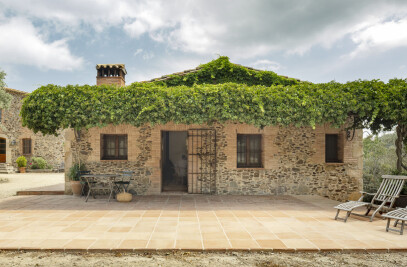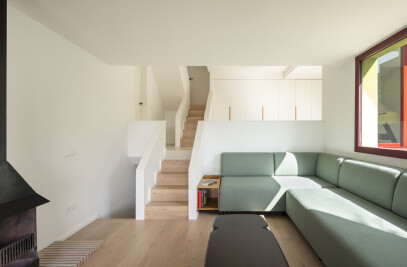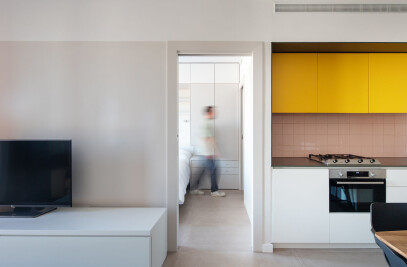Bordering the Mediterranean Sea, the Camí de Ronda is a historical coast path that connects the villages and beaches of the Costa Brava. Along the way, we find this house, part of a protected complex, in an unbeatable location. The house spreads out over four floors. It sits upon a rock and descends, in steps, until it meets the sea, to which it is connected with a private jetty.

The family had been looking for a property that was both simple and comfortable, one which would allow for the independent usage of secondary rooms, as well as the collective usage of a communal area connected to the main terrace.

It was necessary to make some adjustments to the functional plan of the house, converting a once shady terrace on the second floor into a new bedroom and adding bathrooms to the second and third floors. Restoration work was performed throughout the building to repair the façades, roofs and terraces. The overall volume of the house was maintained, as was its characteristic mediterranean colour, composition and aesthetic.

The interior layout of the house was modified, by opening up holes in the walls and installing skylights to maximise the views and flood the entire building with natural light. The staircase acts as a thread that connects all four floors. The attic, the communal areas and the bedrooms are all linked with direct access to the beach.

The windows of the seaside façade offer complete exposure, minimizing the division between indoors and outdoors. This connection ensures that the main communal spaces remain complete; that is, the terrace becomes an outward extension of the living room.

As well as heating, only a simple ventilation system consisting of ceiling fans has been installed. to complement the natural ventilation provided by the windows and skylights. At the exterior of the house, the blinds and the pergola limit the sun’s rays, ensuring comfortable temperatures with the house even in summer.

Many of the house’s original elements, such as the tiled flooring and wooden beams, were recovered to preserve the traditional character of the building. These original features interact with the more modern wooden, cement, steel and ceramic components. The result is an undoubtedly contemporary design that remains faithful to the austere character of the original construction.

The design and introduction of custom-made furniture was of special importance to this project, contributing a functional value to each room. Whether by dividing up space or by dispersing natural light, the furniture takes on an active role in the creation of different internal areas.

The result of the restoration and renovation is a house that is true to its traditional, mediterranean origins and, at the same time, unequivocally contemporary in its design. The natural light and exquisite sea views, bestowed by its great location, now take center stage in what is a privileged home.


























































